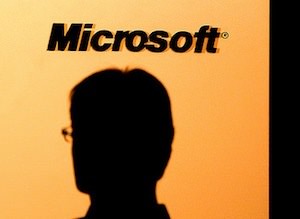Microsoft Gives Your Information to the Government
The company's first transparency report shows the U.S. and Turkish governments were nearly tied in 2012 for making the most requests for customer data, such as IP addresses, emails and photographs.
Microsoft’s first transparency report shows the U.S. and Turkish governments were nearly tied in 2012 for making the most requests for customer data, such as IP addresses, emails and photographs.
Appeals appear to break down into two categories. “Customer content” includes emails and the subject or bodies of emails, photographs and other media. “Transactional” data includes IP addresses, names and billing addresses. A total of 70,665 requests were made to the company in 2012. Turkey made 11,434 of them while the U.S. made 11,073.
Almost 80 percent of disclosures consisted of transactional data. Turkey won 8,997 such disclosures, while the U.S., U.K., France and Germany received 7,000-odd responses each. Customer content counted for a total of 1,558 disclosures. The bulk of those by far went to the U.S., whose overtures were satisfied 1,544 times.
A minority of the requests — 16.8 percent of cases — resulted in no disclosures because “no data relevant for the accounts queried was found,” Ars Technica reports. Some appeals were rejected for not meeting legal criteria. Almost all of those—759 out of a total of 866—came from the U.S.
Skype, the Internet telephone and video conference service, apparently has a reporting and recording system that did not completely fit the scheme of Microsoft’s first transparency report. Company representatives say they will alter their data collection efforts so they can provide the same level of detail for Skype. Of 15,409 such requests made worldwide, none resulted in the disclosure of customer content, but an unreported amount of transactional data was released. The U.S. petitioned Skype for information 1,154 times, while the U.K. made a total of 4,713 inquiries, more than any country.
Microsoft says it will update the report every six months.
— Posted by Alexander Reed Kelly.
Your support matters…Ars Technica:
The lack of information about Skype may frustrate an on-going effort by privacy advocates and activists to get Microsoft to publicly state what data it can collect from Skype users, what data it does collect from Skype users, what its procedures are when asked for data, and what its relationship is with TOM Online, a Chinese company that operates licenses Skype’s technology for use in China and that provides a modified Skype client that performs censorship of Skype chats. These concerns were raised in an open letter published in January. Microsoft is yet to respond to the letter.
Independent journalism is under threat and overshadowed by heavily funded mainstream media.
You can help level the playing field. Become a member.
Your tax-deductible contribution keeps us digging beneath the headlines to give you thought-provoking, investigative reporting and analysis that unearths what's really happening- without compromise.
Give today to support our courageous, independent journalists.





You need to be a supporter to comment.
There are currently no responses to this article.
Be the first to respond.